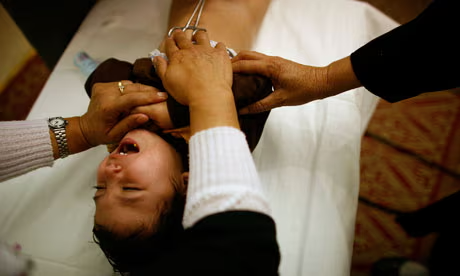Determining the ideal time for circumcision is a nuanced decision, particularly when considering adult circumcision. For adults, the choice to undergo circumcision often stems from personal, medical, or cultural reasons. Unlike infant circumcision, adults must navigate a more complex decision-making process, factoring in potential medical benefits, risks, recovery time, and psychological impacts.
Additionally, adult circumcision can entail a longer recovery period and may require more pain management compared to neonatal procedures. In London, healthcare facilities offer specialized care and support for those opting for adult circumcision, ensuring a safe and informed experience. Adult circumcision in London is tailored to individual needs, emphasizing patient comfort and medical precision.
Circumcision in Childhood – Psychological and Social Considerations
Circumcision in childhood can have significant psychological and social implications. It’s essential to consider the child’s understanding and emotional readiness for the procedure. Socially, it may affect their interaction with peers, especially in cultures where circumcision is less common. Parents need to prepare and support their children, helping them understand the process in an age-appropriate manner.
Circumcision in Childhood – Medical Reasons for Delayed Circumcision
- Congenital conditions like hypospadias that require corrective surgery before circumcision.
- Infections or dermatological issues affecting the genital area.
- Hematological disorders that could complicate surgery.
- Waiting for the child to reach a specific developmental stage or physical maturity.
Handling Pain and Recovery
Effective pain management and recovery care are crucial in childhood circumcision. Anesthesia reduces discomfort during the surgery, and adequate pain management should be given afterward. In addition to keeping the area clean, keeping an eye out for infection symptoms, and offering emotional support to help in the child’s recovery, parents are crucial in the aftercare process.
Adult Circumcision – Reasons for Circumcision in Adulthood
- Medical issues like phimosis, recurrent infections, or balanitis.
- Personal or cultural beliefs and practices.
- Aesthetic or hygienic preferences.
Recommendations from healthcare providers for specific health concerns
Risks and Recovery Process
Adult circumcision carries risks such as bleeding, infection, and potential impact on sensation. The recovery process is generally longer than in infants, often requiring a few weeks for complete healing. Adults must follow post-operative care instructions meticulously, including maintaining hygiene and possibly abstaining from sexual activity during recovery.
Impact on Sexual Health and Psychology
Undergoing circumcision as an adult can affect sexual health and psychology. It may lead to temporary discomfort during sexual activities and a period of adjustment to the new sensations. Psychologically, the decision and recovery process can be a significant life event, requiring mental preparedness and potentially impacting one’s self-image and sexual confidence.
Medical Recommendations and Guidelines
The medical recommendations and guidelines for circumcision emphasize a balance between health benefits and individual choice. While acknowledging the health advantages of circumcising newborns, the American Academy of Pediatrics suggests that parents’ views and religious convictions be taken into consideration.
The World Health Organization recognizes that circumcision can help prevent HIV transmission and supports the procedure, especially in areas where the virus is prevalent. These rules emphasize the significance of informed consent, particularly for adults or situations where parents make decisions on behalf of their children.
Effective pain treatment before and after the procedure is strongly advised, and preoperative examinations are essential to identify potential contraindications. Instructions for postoperative care are given to guarantee appropriate recovery and avoid problems. These recommendations are regularly updated to consider new medical findings and ethical issues, keeping procedures up-to-date and patient-centered.
Preparing for Circumcision
Preparing for a circumcision involves several important steps, both before and after the procedure, to ensure a smooth experience and recovery.
Steps before the procedure
Selecting the right healthcare provider is the most crucial step before surgery. It is important to choose a skilled and experienced specialist; ideally, one who specializes in circumcision or has a strong history of doing successful procedures.
You might ask your primary care physician for referrals or research respectable neighborhood clinics and hospitals in the area. They will guide you through the required arrangements once you select your healthcare provider. This might include guidelines on how to be quick, practice excellent cleanliness, and prepare for the process. They will also discuss anesthetic options to provide comfort throughout the process.
Aftercare and recovery tips
Recovery and aftercare play a crucial role in the circumcision procedure. The surgeon will provide comprehensive instructions on taking care of the surgery site, handling any pain or discomfort, and what symptoms to watch out for regarding infection or complications.
You must precisely adhere to these directions to encourage recovery and avoid problems. This could entail wearing loose-fitting clothes to prevent irritation, cleaning the region thoroughly, and using the recommended ointments.
Recovery time varies from person to person; however, it’s usually recommended to rest for a few days after surgery. Healing can go more quickly and easily if one avoids physically demanding tasks and gets enough rest. Routine follow-ups with the healthcare professional may also be required to track the healing process.

